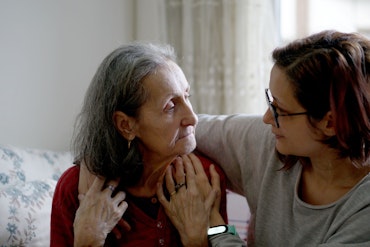An appetite for life
A simple question about appetite can provide insights into an older person’s general health that may help reduce their risk of dying.

Ask your residents if they've had enough to eat, says Monash University's, Emeritus Professor Mark Wahlqvist.
Leading a team investigating the connection between appetite and mortality is Emeritus Professor Mark Wahlqvist, from Monash University’s Department of Epidemiology and Preventive Medicine and the Monash Asia Institute.
According to Professor Wahlqvist, appetite is generally regarded as one of the “most important” indicators of health.
The urge to eat is often reduced in the elderly, with many afflicted by the, as Professor Wahlqvist refers to as, 'anorexia of ageing'.
Chewing difficulties, general deterioration or the side effects of medication may have an adverse effect on appetite, as may psychological factors such as loneliness or depression. Family circumstances and other environmental factors may also play a role.
“Factors of this kind lead to poor appetite and related poor health. We found that elderly people with fair or poor appetites had higher risks of mortality than those with good appetites,” he says.
The study, based on data from more than 1,800 independently living Taiwanese over the age of 65 years, finds that those who have poor appetites consume a less diverse diet than others, with a consequently lower intake of energy, protein, vitamins and other nutrients.
It also shows appetite to be a reliable predictor of mortality, Professor Wahlqvist says, but one that opens up the potential for helpful intervention.
“Poor appetite may be a valuable early indicator of incipient nutritionally related disorders and disease, and of premature mortality.”
According to Professor Wahlqvist, poor appetite does not directly bring about death: it’s the resulting poor diet that causes the harm.
“Knowledge of old people’s appetite therefore has considerable potential to be useful in both clinical and community settings, and should be part of an integrated approach to diet that underpins a healthy old age,” he says.
The research study also involved the National Defence Medical Centre, the National Health Research Institutes and the School of Public Health in Taiwan.























